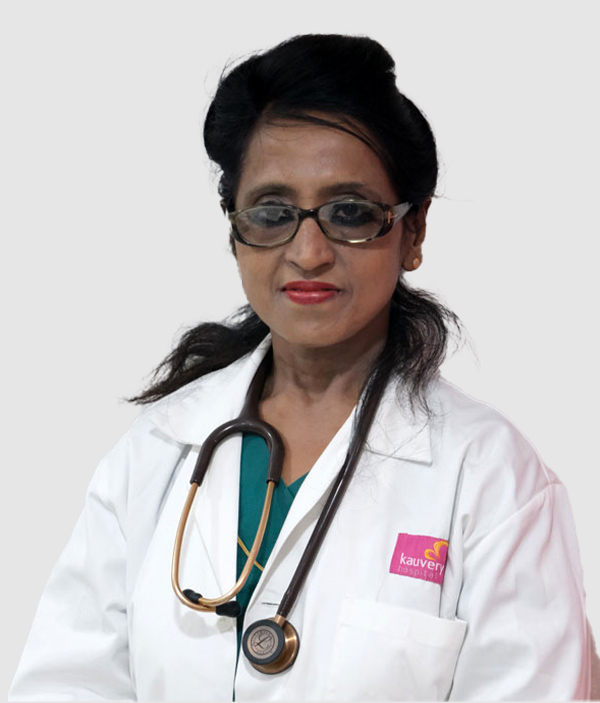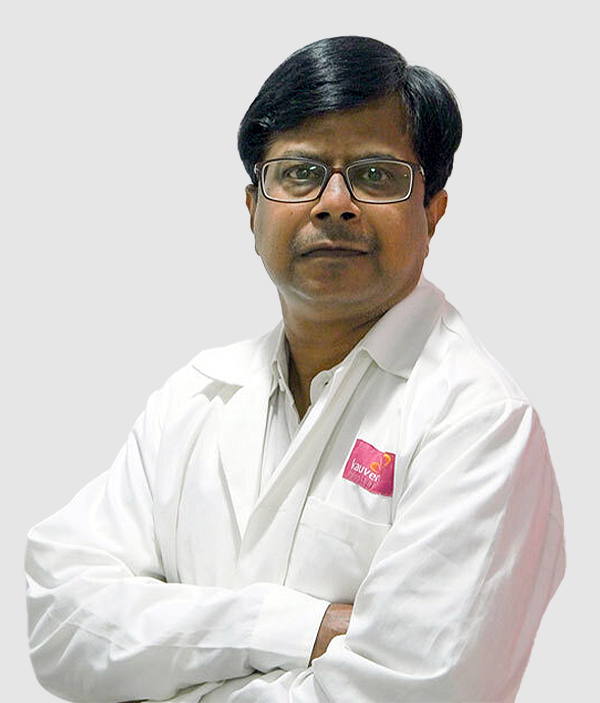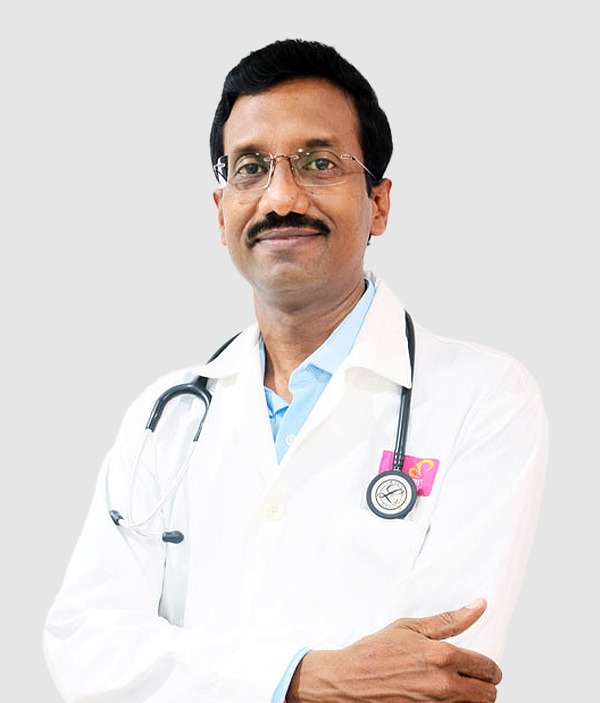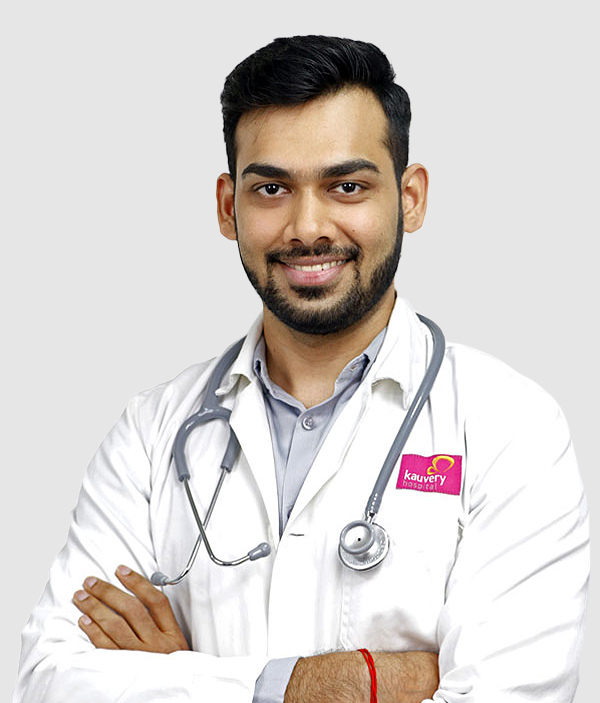What is Bone Marrow?
Bone marrow is a fatty tissue found inside your bones which contains stem cells that develop into different types of cells that your body needs. When these stem cells are damaged due to cancer, chemotherapy or any other disease, your body loses the ability to create healthy blood cells. It is in conditions like these that a bone marrow transplant is considered.
What is a Bone Marrow Transplant?
A Bone Marrow Transplant (BMT) is a medical procedure that replaces diseased or damaged bone marrow with healthy blood-forming stem cells
The process involves taking healthy stem cells from the patient or a donor, filtering them and transfusing them into the patient’s vein through a catheter. The cells will find their way into the bones through the bloodstream and start developing into mature blood cells.
Stem cells can be collected from cells circulating in the blood (peripheral blood stem cells) or through bone marrow harvest or from Umbilical Cord.
What to expect during and after the bone marrow transplant procedure?
The transplant infusion is a painless procedure and doesn’t require anaesthesia. The stem cells are infused into the patient’s body through a catheter that is surgically placed in a vein in the chest area.
The patient will be closely monitored after the transplant and every step would be taken to prevent infections and other complications. Doctors will advise the patient on the medications to take and the diet/lifestyle changes that need to be made.
Regular follow-ups will be required for months to years after the transplant.The patient will have to undergo blood tests to keep track of the blood counts, which are indicative of how effective the transplantation is.
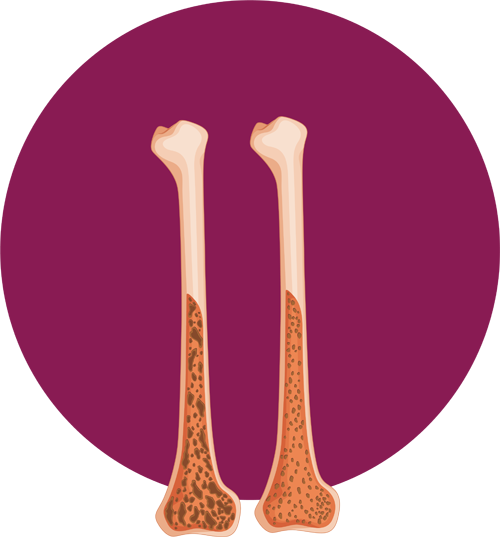
Bone Marrow Transplant Specialists in Chennai, India
Book an Appointment
What are the possible side effects of bone marrow transplants?
Bone marrow transplants are safer than ever before, but depending on various factors, like the type of transplant, pre-existing conditions, age and overall health of the patient, complications may arise.
- Infections
- Anaemia and Thrombocytopenia (low count of platelets)
- Gastrointestinal irritation, Throat Pain
- Fluid overload
- Respiratory distress
- Organ damage
- Graft (transplant) failure
- Graft-versus-host disease (The donor’s immune system reacts against the recipient’s tissue)
- Fertility issues
- Eating disorders
- Fatigue
- Bleeding
With newer methods to improve the effectiveness of the treatment and reduce complications and side effects, the prognosis and long term survival rates of BMT patients are excellent.
The Kauvery team has a highly experienced Transplant team, with experts in Oncology, Haematologyand Immunology along with other healthcare providers. With many successful BMTs completed, you can rest assured that you can return to your normal routine fast and enjoy good quality of life.
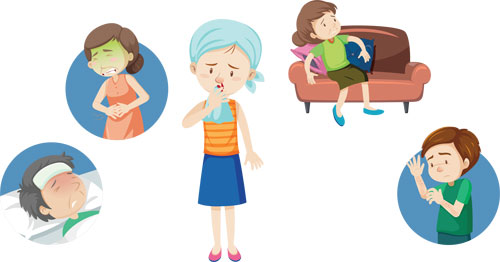
‘Frequently Asked Questions about Bone Marrow Transplantation
Bone marrow transplantation in India is undertaken for people who are currently suffering from any of the below conditions:
- Cancers of the blood, bone-marrow and lymphatic system: This includes Acute lymphocytic leukemia, acute myelogenous leukemia (AML), Chronic lymphocytic leukemia, Hodgkin’s lymphoma, Multiple myeloma and non-Hodgkin’s lymphoma.
- Aplastic anaemia (A condition in which the body stops producing enough new blood cells)
- Immune deficiency disorders
- Thalassemia (the blood contains lower than normal level of oxygen-carrying protein)
- Adrenoleukodystrophy (a condition that damages the myelin sheath which insulates the nerve cells in the brain)
- Amyloidosis (a build-up of amyloid proteins in internal organs such as liver, heart and kidneys
- Aplastic anemia (the body produces inadequate new blood cells)
- Bone marrow failure syndromes
- Hemoglobinopathies (abnormal shape or production of the hemoglobin molecule)
- Inborn errors of metabolism
- Myelodysplastic syndromes
- Neuroblastoma (a type of cancer in the adrenal glands)
- Plasma cell disorders
- POEMS syndrome (a combination of 5 different conditions)
- Sickle cell anemia (changes to the gene which signals production of hemoglobin)
India’s healthcare system has seen rapid strides in the three decades that followed economic liberalization in 1991. Today, India is one of the premium Medical-Tourism destinations in the world. It boasts of world-class hospitals with state-of-the-art infrastructure. Highly qualified, experienced and trained doctors in these hospitals routinely publish papers in top medical journals of the world and are recognized worldwide.
There are some Bone Marrow Transplant (BMT) options in Chennai and Trichy. Prominent among them is Kauvery Hospital, one of the leading Hospital chains of India.
What sets Kauvery apart is the multi-disciplinary approach backed by strong R&D and pathological capabilities. Kauvery has a highly experienced Bone Marrow Transplant team, with subject matter experts in Oncology, Haematology and Immunology, along with other healthcare departments. Having completed many successful BMTs, Kauvery’s team will ensure the patient can return to a normal routine quickly and enjoy a good quality of life, thereafter.
Bone marrow transplant in Chennai or any other city of India comes with its own risks and complications. This does not in any way reflect on the capabilities of the doctors or hospital involved, but has more to do with the procedure itself.
During the procedure
- Fever
- Chills
- Body Pain
- Chest pain
- Hives
Immediately after transplant, as well as short-term
- Hypotension (low BP)
- Headache
- Mouth and throat pain
- Nausea and vomiting
- Infection
- Shortness of breath (dyspnea)
- Bleeding and transfusions
- Interstitial pneumonitis and other lung problems
- Graft-versus-host disease
- Hepatic veno-occlusive disease (VOD)
- Graft failure
After some time
- Cataracts
- Infertility
- New cancers
- Relapse of existing cancer
- Hormonal changes in the pituitary and thyroid glands
- Post-transplant lymphoproliferative disorder
- Organ damage
- Abnormal growth of lymph tissues
- Anemia
- Mucositis
- Early onset of menopause in women
- Death
- However, please note, the risk factors for developing such complications depend on the person’s age, their general health, and the disease which necessitated BMT.
Kauvery Hospital is one of the prominent Bone marrow transplant hospitals in Chennai. Here, some patients may be discharged right after a BMT, while some may have to stay for several weeks or months. In this duration, a team of doctors will be closely monitoring the patient. The doctors will check the patient’s blood every day to monitor the outcome of the BMT. They will check if new cells have started growing in the bone marrow. If the patient’s WBC count is rising, it means the body is creating its own blood, or that the BMT is successful. The positive outcome of BMT can last for life.
It can take anywhere from 6 to 18 months for blood-counts to get close to normal and the immune system to become healthy. The exact recovery period will depend on factors such as
- type of transplant
- recovery of the immune system
- body’s reaction to the new, healthy cells
- underlying medical conditions
- use of chemotherapy or radiation, or both
- closeness of the donor match
A Bone Marrow Transplant success rate in India is one of the highest in the world. The figure ranges from 60 to 85%. In fact, patients who underwent an allogeneic transplant (a type of BMT) for a non-malignant tumour have shown success rates between 70 to 90% with a related donor, and between 36 to 65% for an unrelated donor. Age is also a factor and a young patient is more likely to survive long-term after BMT, than some body older than 60 years.
Reasons for high success rate in India:
- Exceptionally large number of JCI-accredited bone marrow transplant centres. Such hospitals are equipped with excellent infrastructure, modern equipment, and advanced medical capabilities. BMT should be performed in very clean surroundings to reduce chances of infection. Most BMT hospitals in India have HEPA filter rooms, modular OTs and high-tech diagnostics.
- Skilled, experienced, well-trained and highly qualified hematologists and oncologists.
- Accuracy in genetic matching, a strong antibiotic regimen post-transplant, excellent post-op care.
Bone marrow transplant procedure involves collecting the replacement stem-cells, preparing the patient for transplant using various treatments, the day of actual transplant, followed by recovery period.
A small tube called the catheter is placed in the patient’s chest and remains throughout the treatment process. It is used to give chemotherapy, medications and blood transfusions.
AUTOLOGOUS Transplant
- Collecting patients stem cells, which takes several days. Medication is given to increase stem-cells, then collected through a vein in the arm or chest, and stored until needed.
- Pre-transplant treatment which takes 5 to 10 days. The patient will get a high dose of chemotherapy, and occasionally, radiation too, to prepare his/her body to receive donor’s cells.
- Getting stem-cells back on the day of transplant. The team will push a dose of stem cells through the catheter (called infusion). There can be more than one infusion, each one taking 30 minutes.
- Recovery: Close monitoring, anti-biotics to reduce infection and watching out for side-effects.
ALLOGENIC Transplant
- Donor identification: Potential donors in the family will be checked for matching HLA type. If no match is found, unrelated donors are identified from a rooster of volunteers.
- Collecting stem cells from the donor: The cells will be collected from the donor’s blood or bone marrow. In case of bloodstream, donor gets daily medication to increase WBC count. In case of bone marrow, cells are harvested in the OT, on day of the transplant.
- Pre-transplant treatment: as described above
- Getting the donor cells. as described above
- Recovery: as described above
Donor for the bone marrow donation can be a close member of the family such as a sibling, parent or child. Even cousins can be screened for donation. The challenge lies in finding the right match. Not every relative can donate bone-marrow. The donor’s HLA (or human leukocyte antigens, a kind of protein found in the blood) must be a close match to that of the patient. The match is determined by conducting blood tests of patient and his/her relative. This is called HLA typing. The right match of HLA will ensure donated stem-cells produce new blood-cells that replace the unhealthy ones.
Nearly 30% of people awaiting a BMT find a matching donor in the family while the remaining 70% will require unrelated donors.
Please note, HLA typing will require the relative or family member to come in person to the hospital and provide blood for the test. This must be factored while listing out prospective donors from the family.
Some of the best bone marrow transplant hospitals in Tamil Nadu have a clear process for preparing a patient for BMT. Such attention to detail will ensure a positive outcome.
- Pre-tests: Various tests are conducted to assess the general health of the person and his/her ability to go through the BMT. These tests could take several days.
- Conditioning: First, a catheter (thin, flexible tube) is implanted in a large vein in the neck or chest. This will remain during the entire duration of the treatment. Then chemotherapy drugs are administered through the catheter. This helps destroy cancer cells that are at the risk of spreading in the body. Chemotherapy also suppresses the immune system and prepares the bone marrow for new stem cells.
- Reduced-intensity conditioning: Based on the age and health parameters of the patient, chemotherapy of a lower intensity will be given and this is called reduced-intensity conditioning.
- Managing side-effects of conditioning: Conditioning comes with various side-effects, so the patient is educated about it, and the side-effects managed effectively.
In case the patient is not able to find a matching donor, either related or unrelated, there are other alternatives to conventional BMT, as some of the top bone marrow transplant surgeons in India will tell you.
- Umbilical Cord Blood (UCB): Blood cells taken from the umbilical cord of a related or unrelated donor are frozen and stored in a cryogenic chamber. This can be given to patients suffering from certain genetic disorders or malignancies. The donor can be a sibling who has a partial HLA match to the recipient.
- Omidubicel: This is a drug manufactured by Gamida Cell and is under investigation for treating hematological malignancies. Clinical trials have shown good results in comparison to UCB transplant.
- Haploidentical transplant: In this, a related donor (such as a sibling) who has a partial HLA match is chosen. Then his/her immune system as well as that of the patient are manipulated so that the bone marrow transplant shows a better outcome.


